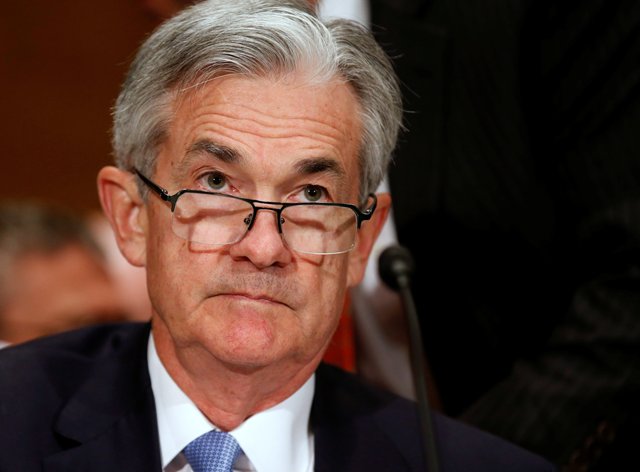First Congressional Testimony to bring little clarity
 It would be too much to expect Jerome Powell to use his first testimony before congress to provide anything other than a “steady as she goes” message on the economy and his expectation for the future path of interest rates. Inflation remains benign at best in the U.S. with the Fed’s preferred measure; core personal consumption expenditures remaining well short of the 2% target. The January data is due for release this week and it is expected to remain close to 1.5%.
It would be too much to expect Jerome Powell to use his first testimony before congress to provide anything other than a “steady as she goes” message on the economy and his expectation for the future path of interest rates. Inflation remains benign at best in the U.S. with the Fed’s preferred measure; core personal consumption expenditures remaining well short of the 2% target. The January data is due for release this week and it is expected to remain close to 1.5%.
The market seems poised to react to the wages section of the employment report which will be delayed until March 9th. It was this report which started the recent bout of volatility as wage inflation grew significantly higher than market expectation in December. The scene is therefore set for further volatility; if the rise in wage inflation continues, rate hike expectations will be heightened. However, should any change in wage inflation be muted, the dollar could react more violently and break into a new, lower, range, although this is unlikely to be the base case scenario.
The dollar index remains mired close to its lows as the market lacks sufficient confidence in any rebound in the U.S. economy.
Corbyn’s strong policy lacks vision or depth
 Jeremy Corbyn the Leader of the UK Opposition Labour Party has long been a politician who hasn’t needed to be concerned that his policies could ever become those of the Government. He has always had the luxury of being in opposition and therefore able to put forward interesting discussion documents that can be treated as theory. However, as Corbyn’s Party edge closer to the Government in polls, his alternative Brexit policy which was unveiled yesterday requires at least cursory consideration.
Jeremy Corbyn the Leader of the UK Opposition Labour Party has long been a politician who hasn’t needed to be concerned that his policies could ever become those of the Government. He has always had the luxury of being in opposition and therefore able to put forward interesting discussion documents that can be treated as theory. However, as Corbyn’s Party edge closer to the Government in polls, his alternative Brexit policy which was unveiled yesterday requires at least cursory consideration.
Were Labour to win any forthcoming General Election in the UK, the Labour Party would negotiate to keep the UK in the Customs Union ensuring tariff-free trade between the UK and EU. The quid pro quo Corbyn is offering for this is that the UK should be allowed to participate in the negotiation of future EU trade deals in which it would participate.
Forgive me Jeremy, but isn’t that what the UK has now? So, what was all this Brexit talk about? The UK remains in the customs union and becomes a silent participant in trade deals struck on its behalf by Brussels. Along with customs union will come free movement, a soft Irish Border and the European Court. So, Labour’s Brexit plan is to do away with Brexit. It’ll never catch on!
It’s like the old days
 Trading FX has become a tough pastime again. Every time I see an opening, the door slams shut without me being able to take advantage. Small victories and plenty of them are the order of the day. Rangy markets have two common effects. They lull us into trading into and out of the same position over and over but eventually the range will break, and the loss will remove a fair piece of the profit that has been so painstakingly gathered.
Trading FX has become a tough pastime again. Every time I see an opening, the door slams shut without me being able to take advantage. Small victories and plenty of them are the order of the day. Rangy markets have two common effects. They lull us into trading into and out of the same position over and over but eventually the range will break, and the loss will remove a fair piece of the profit that has been so painstakingly gathered.
Given the number of drivers now being seen in the market, it can be a matter of pot luck which leads us into profitability as the whole this then determines how long we stay with the idea and ultimately how successful we are.
The counter-intuition that is being brought by Central Banks can be disconcerting. It is only the ECB that has a policy that is both transparent and understandable. Mario Draghi has virtually said “look, I don’t want to raise interest rates, why would I. The longer rates stay low the more my friends in lower growth states can benefit and their economies can move towards self-sustaining growth”. The Bank of England is saying “inflation is way too high, we have tried telling everyone it’s not our fault, but the Government says, “if it’s not your fault then whose is it?” so we need to do something. We’ll start by jawboning but if that fails we may have to take a massive risk with the economy and raise rates”
Central Bank influence is nothing new, but we just aren’t used to it anymore!
















